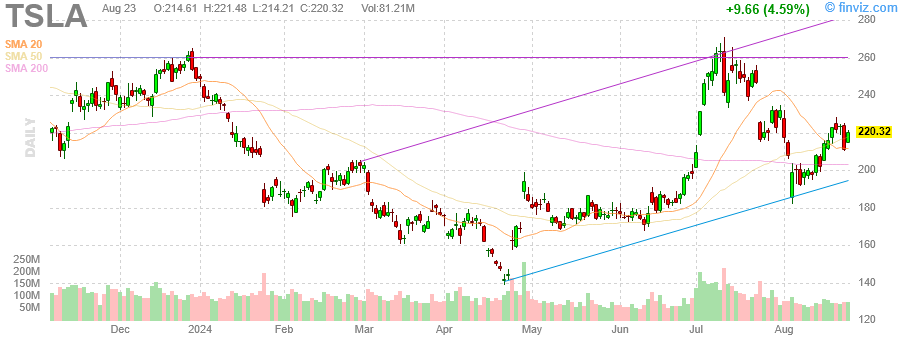LOS
ANGELES—Brian Mainolfi has been drawing since he came to this city in
1994. The Baltimore native started as an assistant to legendary Looney
Tunes animator Chuck Jones, worked on Disney’s “The Hunchback of Notre
Dame” and “Mulan,” and spent a decade on the animated sitcom “American
Dad.”
The appeal of the work was simple. “People love cartoons,” he said. “And I love making cartoons.”
Since
his last show was canceled in 2024, Mainolfi’s artistic output has been
limited to dinosaurs and monsters in his sketchbook. Like thousands of
people who work in the entertainment industry, he has become collateral
damage of a precipitous slowdown in production. The only work he’s found
is teaching an animation class at a Cal State campus three hours away,
for $350 a week.
Mainolfi’s
family of four never lived extravagantly on his salary of around
$100,000, but now they’re using retirement and college savings and
scrimping to survive in their three-bedroom ranch house in suburban
Burbank. With his union healthcare set to disappear at the end of the
year for lack of work, the 54-year-old is trying to figure out for the
first time in his life what he could do to make money besides draw.
“By
the end of the year if I don’t have something, I’m going to have to
apply to a big-box store or a grocery store or something,” he said.
Los
Angeles is full of transplants who moved here to pursue dreams of
working in movies and TV. Few earned millions as stars or A-list
directors. They build the sets, operate the cameras, manage the
schedules and make sure everything looks and sounds perfect. The work
isn’t steady, because film shoots end and TV shows get canceled. But
established professionals had rarely gone more than a few months between
gigs—until now.
The entertainment industry is in a downward spiral that began when the dual strikes by actors and writers ended
in 2023. Work is evaporating, businesses are closing, longtime
residents are leaving, and the heart of L.A.’s creative middle class is
hanging on by a thread.
“This
is the first year since 1989 that I haven’t had a show to work on,”
said Pixie Wespiser, a 62-year-old production manager and producer who
has worked on 36 TV series, including the original “Night Court” and its
recent revival. “I look around and I see so many people who are
seriously suffering.”
At
the end of 2024, some 100,000 people were employed in the motion
picture industry in Los Angeles County, according to the Bureau of Labor
Statistics. Two years earlier, there were 142,000.
The
primary reason is that Hollywood is making less stuff. The film
business has yet to rebound from the shutdown of theaters during the
pandemic. TV production was booming in the 2010s and early 2020s as
companies tried to jump-start streaming services, but in 2022, investors saw streaming growth was slowing
and decided what actually matters is profitability. Entertainment
companies, which plan productions many months in advance, cut spending
dramatically when the strikes ended the following year.
Nearly
30% fewer movies and TV shows with budgets of at least $40 million
began shooting in the U.S. in 2024 than in 2022, according to data firm
ProdPro. The first three-quarters of this year were down another 13%.
The
situation is particularly dire in Los Angeles. Because of the region’s
high costs and a state production tax credit that, until recently,
lagged behind what competitors like Georgia and British Columbia were
offering, studios make most of their content far from their corporate
offices. Last year, there was less production activity in the Los
Angeles area than at any time since at least 1995, save for the
pandemic, according to the nonprofit group FilmLA.
The
industry’s slump is contributing to L.A.’s broader economic challenges.
The region’s recent employment growth has been anemic compared with
other major metropolitan areas and the nation overall. Its 5.7%
unemployment rate is higher than California’s 5.5% and the nation’s
4.3%. And L.A. is still struggling to recover from the winter’s devastating fires
in Altadena and the Pacific Palisades, where many entertainment workers
lived. That disaster exacerbated the city’s already severe housing
crunch.
Hollywood
has endured downturns before, but rarely this sudden and severe. Some
industry analysts believe consumers might be pivoting permanently from
professionally made content to the endless buffet of YouTube and social media.
Any
rebound in production activity would take at least a few years, and
possibly many more. And a full recovery might never happen if generative
artificial intelligence makes animation and visual-effects jobs
obsolete, as many workers fear.
Meanwhile, thousands of dreams built around working in the movie and TV business are evaporating.
Missing purpose
Thomas Curley won an Oscar recording the sound on 2014’s “Whiplash” and had more job offers than he knew what to do with as recently as 2022. The 49-year-old hasn’t worked since April of last year, save for one week on a movie that was made in Europe but needed to shoot exteriors in San Francisco.The
hardest part isn’t watching his savings wither while he does home
improvement projects and hunts for jobs, Curley said. It’s missing the
creative camaraderie he has enjoyed for most of his adult life on movie
and TV sets.
“Feeling
like you’re part of a team that’s making something that can provide joy
for millions of people around the world is what drew me here in the
first place,” said the native of upstate New York. “That level of
purpose is a really hard thing to let go of.”
Entertainment
industry workers got through last year with a mantra: “Survive ‘til
25.” But jobs are even more scarce this year. L.A. and New York-based
members of the health and pension fund that covers most
behind-the-scenes craftspeople worked 18% fewer hours this year through
mid-August than in the year-earlier period.
“It
felt like the floor fell out,” television writer Matt Walsh said of the
evaporation of job prospects. After moving to L.A. from Orange County,
he spent a decade hustling as an assistant on sets and in writers’ rooms
before finally getting his first scriptwriting assignment in 2023, on
the TBS series “Miracle Workers.”
Since
the strikes ended, the 34-year-old hasn’t been able to find work as a
writer. He’s back to working as a production assistant, the first job he
ever had in entertainment.
Hollywood’s
downturn has rippled through the region’s economy. Fewer productions
mean fewer orders for props, costumes and catering from local
businesses, and less spending by unemployed or anxious workers on
everything.
Courtney
Cowan’s Milk Jar Cookies shop made deliveries to movie sets and agents’
offices, but most of its business was regular people. She was expecting
2023 to be a banner year with the opening of her second location and a
franchise program. Instead, the strikes began and sales immediately
dropped 30%....
Brutal, just brutal.
Possibly also of interest:










